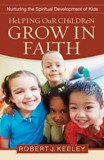I recently attended a graduation ceremony at which a parent, while closing in prayer, invited those of us who were comfortable with it to raise our hands to bless the graduates as he offered a prayer / blessing. I did not raise my hands.
Before the reformation the church had all the access to God and the people had almost none of it – people didn’t have a direct line to scripture, for example and they certainly had limited access to the sacraments. The only way to get to God, at that time, according to the church, was through the church. The reformation changed much of that and, as Protestants there are now only a few things that we don’t have direct access to. We read and interpret scripture ourselves; we have our own Bible studies. Some of us even write books and articles about worship without being ordained by a church. But there are a few things that the church still owns, those being primarily the sacraments and, at least in my tradition (Reformed) , the act of raising one’s hands while giving the blessing.
I am more than happy to give a blessing to people – and I do, especially in children’s worship as the children leave. I touch them on the shoulder and say “God bless you, Madeline” or something to that effect. I also am happy to read the Aaronic blessing at certain occasions. But the lifting of hands when issuing the blessing, as a representative of the church, has been restricted to those ordained as ministers of the Word. That’s not me.
So, have I put too much weight on this? Was I just being a stick-in-the-mud by not raising my hands? Is this an example of the church becoming less important in the eyes of today’s Christians? Are we just a group of people who get together to sing and praise God rather than a people set apart?
I really would like some feedback on this one.
Lots of layers of emotions going on in this one
4 years ago



